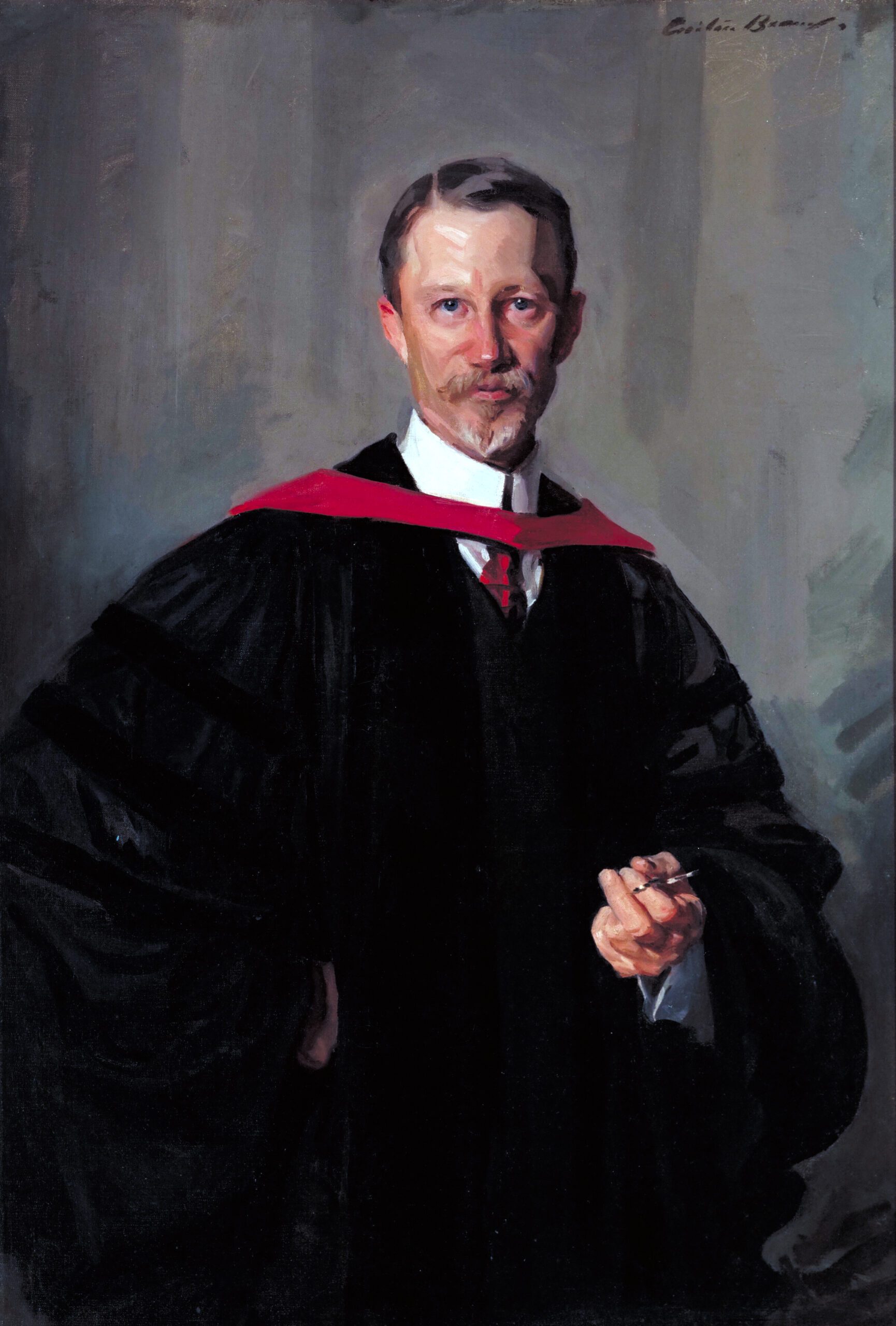William Henry Howell

William Henry Howell
- Artist:
- Cecilia Beaux
- Date:
- 1911
- Medium:
- Oil on canvas
- Dimensions:
- 43 x 30 in.
William Henry Howell
1860-1945
Howell, the first professor of physiology at the Johns Hopkins University School of Medicine, was born in Baltimore. He attended The Johns Hopkins University for undergraduate and graduate studies. In 1881 he received his A.B., and in 1884 his Ph.D. in biology. His doctoral dissertation, The Origin of Fibrin Formed in the Coagulation of the Blood, served as the basis for much of his future research on the coagulation of blood. Following completion of his doctorate, he joined the faculty of the department of biology as assistant professor and rose to associate professor in 1888. Howell assumed professorships in physiology and histology at the University of Michigan in 1889. He moved on to Harvard Medical School in 1892 as associate professor of physiology, staying for only one year. In 1893, Howell returned to Baltimore as professor of physiology at the newly established Johns Hopkins University School of Medicine.
At Johns Hopkins, Howell continued research on the physiology of blood, focusing in particular on elements of coagulation. His most significant achievements include the isolation of thrombin and thromboplastin. He is also credited with Jay McLean, a second-year medical student, in the discovery of heparin in 1916. Additionally, he conducted research on circulation of blood and the physiology and mechanism of the heartbeat.
Howell was regarded as a gifted teacher and much beloved by his students and peers alike for the clarity of his lectures and engaging discourse. As a scientific communicator, he published extensively. Howell served as founding editor of Physiological Reviews; chairman of the editorial board of the American Journal of Physiology; and editor of An American Textbook of Physiology. In 1905 he published Text-book of Physiology for medical students.
An able administrator, Howell was tapped 1899 to succeed William Osler as dean of the School of Medicine. He held this position for twelve years while continuing to direct the department of physiology. After leaving the deanship of the School of Medicine, Howell collaborated with William Welch in the establishment of the Johns Hopkins School of Public Health which opened in 1916. There he served as assistant director under Welch until he was appointed director in 1925. During the six years of his directorship he continued research and teaching in the school’s department of physiological hygiene.
In his public health career, Howell concentrated on factors in the environment and occupations that had an adverse impact upon human health. As a major leader in the public health movement, he advocated for prevention of disease and actively promoted optimum health for individuals and the community as a whole.
Howell was awarded numerous honorary degrees in recognition of his research contributions and efforts to advance the teaching and practice of medicine and public health. He was presented honorary degrees from the University of Michigan; Washington University; and the University of Edinburgh.
Sound recordings relating to William Henry Howell:
"*" indicates required fields
